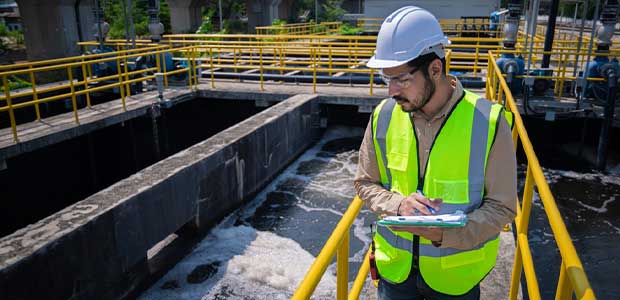
Wastewater Treatment for the Apartments or Residential Areas
What are the benefits of wastewater treatment infrastructure?
- By Rekha Philip
- Mar 17, 2023
Wastewater generated from residential areas, such as apartments, contains various pollutants that can be harmful to the environment and human health if not treated properly.
These pollutants include organic matter, nutrients and pathogens, which can contaminate the soil and water bodies if discharged untreated.
Proper treatment of this water using water treatment plants is essential to ensure the protection of the environment, conserve water resources and maintain public health and hygiene.
Wastewater treatment for residential areas typically involves several stages, including pre-treatment, primary treatment, secondary treatment and tertiary treatment, to remove pollutants from the wastewater.
However, implementing wastewater treatment systems in apartments can face several challenges, such as limited space and high operational costs.
Despite these challenges, it is crucial to invest in proper wastewater treatment infrastructure in residential areas to ensure a sustainable and healthy living environment.
This article will discuss the benefits of wastewater treatment, the treatment process, the challenges faced and practical advice to ensure effective wastewater treatment in apartments.
5 Benefits of Having Wastewater Treatment Infrastructure in Residential Areas
Treating wastewater generated from residential apartments has several benefits.
Protection of the environment. Treated wastewater can be safely discharged into water bodies without causing harm to the environment.
Resource conservation. Treated wastewater can be reused for non-potable purposes such as irrigation, toilet flushing and cleaning, reducing the demand for freshwater resources.
Health and hygiene: Proper wastewater treatment can prevent the spread of diseases and improve public health.
Improved quality of life: Having wastewater treatment infrastructure in residential areas can improve the quality of life for residents by reducing odors and other nuisances associated with untreated wastewater.
Economic benefits. Wastewater treatment infrastructure can provide economic benefits to communities by supporting industries that rely on clean water sources. It can also create jobs and stimulate economic development by attracting businesses that require access to reliable wastewater treatment.
Residential Wastewater Treatment Process
Wastewater treatment for residential apartments typically involves the following stages.
Preliminary treatment: This involves the removal of large objects, such as plastics, rocks and rags, that can cause damage to the equipment during the subsequent stages of treatment.
Primary treatment. In this stage, physical processes such as settling and flotation are used to remove suspended solids and organic matter from the wastewater.
Secondary treatment. This stage involves the biological treatment of wastewater using microorganisms to break down organic matter and nutrients.
Tertiary treatment. This is the final stage of treatment, where advanced processes such as filtration, disinfection and chemical treatment are used to remove any remaining pollutants from the wastewater.
Challenges To Residential Wastewater Treatment
Wastewater treatment for residential apartments can face several challenges.
Limited space. Residential apartments often have limited space, making it challenging to install and operate wastewater treatment plants.
High operational costs. Wastewater treatment plants require significant energy and maintenance costs, which can be a financial burden for residential apartments.
Lack of awareness: Many residents may not be aware of the importance of proper wastewater treatment, leading to improper disposal of wastewater.
Practical Advice
To ensure effective wastewater treatment in residential apartments, here are some practical tips
- Install a decentralized wastewater treatment system that is compact and requires minimal space.
- Educate residents on the importance of proper wastewater disposal and the benefits of wastewater treatment.
- Regularly maintain and inspect the wastewater treatment system to ensure optimal performance and prevent breakdowns.
- Explore the possibility of reusing treated wastewater for non-potable purposes such as irrigation, toilet flushing and cleaning, to conserve freshwater resources.
Conclusion
Wastewater treatment is a critical aspect of maintaining a healthy and sustainable environment, particularly in residential areas such as apartments. Effective wastewater treatment ensures the removal of pollutants from wastewater, protecting the environment, improving public health and conserving water resources.
While there are challenges in implementing wastewater treatment in apartments, it is crucial to invest in proper wastewater treatment infrastructure.
By educating residents on the importance of proper wastewater disposal, regular maintenance and inspections, and exploring the possibility of reusing treated wastewater, effective wastewater treatment can be achieved in residential areas.
About the Author
Rekha Philip is a marketing manager for Advanced Watertek, an OEM & industry leader in membrane-based technologies for water treatment since 1984 with offices in UAE, Australia, and Oman.